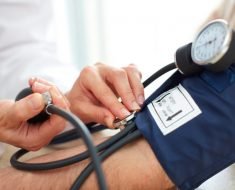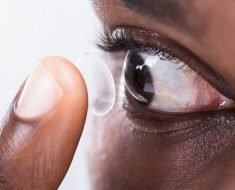- Chronic kidney disease (CKD) affects about 37 million people in the United States (more than 1 in every 7 adults).
- Around 90 percent of people who have this condition are unaware they have it; 2 out of 5 adults don’t know they have severe chronic kidney disease.
- People with CKD can live for years without knowing, as it doesn’t always have the most clearly defined symptoms.
Chronic kidney disease (CKD) — one of the most prevalent chronic health conditions — is something most people don’t think of or realize they might have.
However, the National Kidney Foundation reports that while this condition affects about 37 million people in the United States (more than 1 in every 7 adults), around 90 percent of them have no idea they have it.
If you zero in even further, 2 out of 5 adults don’t know they have severe chronic kidney disease.
In a time when the COVID-19 era has seen dramatic decreases in primary preventive care visits, conditions that go under the radar like CKD can progress undetected.
This can cause something of a domino effect, leading to the exacerbation of a range of other health problems.
Doctors say this is why it’s important you treat primary care as preventive care, maintaining a relationship with your doctor and healthcare team to catch chronic kidney disease early.
Kidney disease can be a ‘silent emergency’
CKD occurs when your kidneys are damaged to the extent that they can’t filter your blood effectively.
Proper kidney function is crucial to balancing the needed minerals and electrolytes in your body, like potassium or calcium, as well as serving in red blood cell production.
Your kidneys also help release water-soluble waste from your body and maintain your body’s acid-base (pH) balance, according to the National Institute of Diabetes and Digestive and Kidney Diseases (NIDDK).
“Kidney disease is very important to discuss because it’s one of those ‘silent emergencies,’ what they call ‘silent killers,’ a lot of people think of like heart disease,” said Dr. Erkeda DeRouen, a primary care physician and Inlightened expert.
DeRouen told Healthline that a lot of people with some degree of CDK can live for years without knowing anything is wrong, given that it doesn’t always have the most clearly defined symptoms.
It’s not like you develop a rash or something changes with your vision. Oftentimes, symptoms won’t manifest themselves until the kidney is severely damaged or you experience kidney failure.
These signs and symptoms can range in everything from swelling of your legs and fatigue, to bone pain or blood in your stool.
It can be confusing because a lot of these symptoms resemble those of other chronic conditions.
“It can be serious because you may not notice symptoms or side effects until it’s very late in your kidney disease, like extreme pain or swelling in your legs or belly,” she added.
Causes of CKD can include comorbid conditions like high blood pressure and diabetes.
DeRouen added that catching this “silent disease” before it gets to an advanced stage involves reorienting how we think about healthcare here in the United States.
She said we need to “think of primary care as preventive care,” meaning that instead of only seeing your doctor once you’re experiencing severe symptoms of a disease, you build a relationship with your team, going in for regular, routine health and wellness checks.
By building a relationship with your doctors, they’ll know what to spot and when to administer the proper screening tests.
If your blood pressure is elevated, they might do a series of blood tests and look for other risk factors of CKD.
A blood test and urine test are how CKD is diagnosed. Your doctor will check your glomerular filtration rate (GFR) using a blood test to measure how much blood your kidneys filter out every minute.
They’ll also perform a urine albumin test. This examines your urine levels of albumin, a protein that passes through the urine when the filters in your kidneys are damaged, according to NIDDK.
Dr. Kinjal Patel, a Los Angeles-based physician who specializes in kidney disease and who’s also an Inlightened expert, said that CKD points to the larger “public health issue of all chronic, non-communicable disease” like high blood pressure, high cholesterol, and diabetes among others — they occur together and affect one another.
While CKD isn’t often listed among these more-discussed conditions, it also works alongside them in what she says is something of a chronic disease “all-for-one package.”
Each impacts the others, and maintaining regular preventive healthcare appointments is necessary for managing all of them.
Patel said that she would like to see more partnerships between specialty and primary care practices being normalized in our healthcare culture.
Not everyone who has CKD — especially milder disease — will need to see a nephrologist, but she said more of an interplay between medical specialties to assess the entirety of a person’s healthcare could help detect some of these chronic conditions sooner.
Prioritizing your health
DeRouen cited the current shifts in healthcare brought on so suddenly by the pandemic.
Postponing routine screenings coupled with the rise of telehealth and visits to urgent care facilities mean people are interacting less with their primary care physicians.
They’re also meeting doctors who aren’t well versed in their own health history and might miss signs of something like CKD.
As with all aspects of our lives, COVID-19 affects people’s overall health, increasing risk factors for CKD.
A recent survey revealed 61 percent of Americans experienced some amount of weight gain during the pandemic. Patel and DeRouen both said that many of the factors that influence conditions like diabetes, for instance, affect CKD.
“They all play off of each other. It’s kind of like if a car misses multiple services, it will take longer for it to get back to its baseline functionality,” Patel said.
She suggested that during a year of the pandemic, many of us let our guard down about taking active preventive measures to keep chronic conditions like CKD in check.
This involves eating healthy foods, which might require consulting with a dietitian, managing your blood pressure, embracing some form of physical activity or exercise each day — all of these healthy lifestyle behaviors can ensure that you can manage your kidney disease and prevent it from advancing.
She said a lot of these lifestyle modifications are simple fixes — it might mean cutting down on alcohol consumption or avoiding fried or fatty foods.
A big help is drinking lots of water each day, and embracing exercise could be as simple as setting aside time each day for a walk.
When it comes to who might be at higher risk for CKD, DeRouen cited that older people might need to be more vigilant about asking their doctors about their kidney health.
A lot of statistics on CKD point to Black and brown people being at higher risk than other groups.
DeRouen said in the past year, a lot of evidence has come out that has directed the medical establishment to reassess how it defines who’s at greater risk.
“Some of the metric systems we have in place may need to be looked at again just because of the historic nature of some of the race-based medicine that has been done,” DeRouen added. “In the past, that has meant African Americans have had a higher GFR rate, for example, but that could be just because of higher muscle mass.”
“So, the medical community is rightfully looking again to the evidence. Right now, a lot of the recommendations out there are still centered on race and ethnicity,” she added.
DeRouen said now is the time to embrace being your own healthcare advocate — making sure you find the care that’s right for you.
When it comes to thinking about how to take a preventive health approach to managing and detecting CKD, Patel added that you should “double down” during this time at taking advantage of the primary care services near you.
“If it wasn’t a priority before the pandemic, maybe take the time to have a shift in perspective of what is important to you and take the time to seek out a team that really resonates with your values and makes you feel seen and taken care of,” she said. “I know this is a big ask on both sides [for doctor and patient], but it is what we need to do.”

Source: Read Full Article




